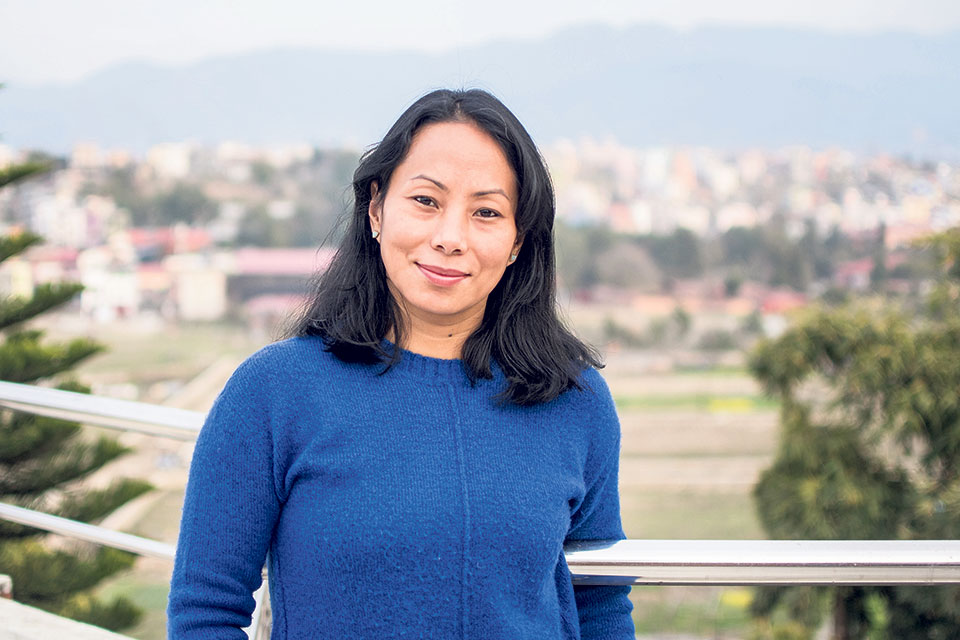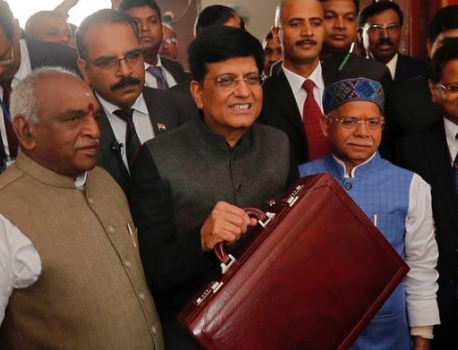
OR

Shradha Ghale is a familiar name in the world of English-language journalism in Nepal. Her writings have focused on unequal power relations in Nepali society and the experiences of marginalized groups across the country. This year she came out with her debut novel “The Wayward Daughter: A Kathmandu Story,” published by Speaking Tiger, Delhi, and the book has caused quite a stir among Nepali readers in and outside Nepal.
The novel is set in the 1990s and revolves around an upwardly mobile, middle-class Janajati family in Kathmandu. The book contains many female characters that seem true to life – the protagonist Sumnima, her grandmother Boju and the village cousin Ganga, to name a few. The book has garnered praise from readers as well as critics for its sincere portrayal of class, caste, and gender dynamics of Nepali society.
You started out as a freelance journalist and now you have made your first attempt at writing fiction, how does the transition play into your writing?
I had been working on this novel for a long time, alongside my journalism and editing work. It’s just that I couldn’t devote as much time to it as I’d have liked to. So I don’t necessarily see it as a transition from nonfiction to fiction. Though it’s true that my journalism doesn’t quite overlap with my fiction. Also, works of authors like Gustave Flaubert, Virginia Woolf as well as neoclassical writers like V.S. Naipaul and Toni Morrison have engaged me thoroughly as a reader and have inspired me to pursue writing as a whole rather than choosing one over the other. The topics I want to write about as a journalist/commentator are different from subjects I hope to explore as a fiction writer.
Can you tell us something about your reading habits or preferences?
I read mostly for pleasure and sometimes for work. I’m a slow reader. Often I’m reading three or four books at a time – a book about Nepal, a book about another part of the world, a novel, and maybe a contemporary bestseller. At least one of these books will be from an earlier time, by an author long dead and gone. But this interest in literature was a gradual one. I didn’t grow up reading and it was only after I discovered AWON Library that I took to it.
Can you describe the process of writing your novel?
Writing this book was a slow and laborious process. I wrote it without an outline, so it was difficult for me to weave the fragments into a whole. It took a lot of patience. Orhan Pamuk said somewhere that writing is like digging a well with a needle. Although I can’t compare my output with his, I think I can relate to what he’s saying.
Who are your favorite novelists?
I admire many of the “greats” of 19th and 20th century Russian, French and German literature despite being critical of certain aspects of their work. Also, in no particular order - Virginia Woolf, DH Lawrence, Gabriel Garcia Marquez, Roberto Bolano, VS Naipaul, Arundhati Roy, Toni Morrison, Zadie Smith, Teju Cole. Among contemporary Nepali fiction writers – Nayan Raj Pande, Buddhisagar, Rajan Mukarung, Upendra Subba, Saraswati Pratikshya, among others.
You May Like This

Complete education, full health could double Nepal's GDP per capita: WB
KATHMANDU, June 7: Nepal has the potential to double its Gross Domestic Product (GDP) per capita in the long run if... Read More...

India proposes IRs 7 billion in grants to Nepal in interim budget
KATHMANDU, Feb 3: India has allocated Nepal an estimated 7 billion Indian rupees in grant for Fiscal Year 2019/20. ... Read More...





Just In
- MoHP cautions docs working in govt hospitals not to work in private ones
- Over 400,000 tourists visited Mustang by road last year
- 19 hydropower projects to be showcased at investment summit
- Global oil and gold prices surge as Israel retaliates against Iran
- Sajha Yatayat cancels CEO appointment process for lack of candidates
- Govt padlocks Nepal Scouts’ property illegally occupied by NC lawmaker Deepak Khadka
- FWEAN meets with President Paudel to solicit support for women entrepreneurship
- Koshi provincial assembly passes resolution motion calling for special session by majority votes






_20220508065243.jpg)






Leave A Comment